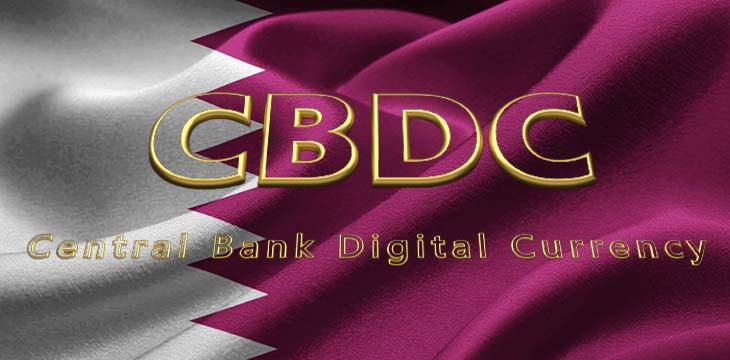|
Getting your Trinity Audio player ready...
|
Qatar is not being left out of countries exploring the launch of a central bank digital currency (CBDC). According to the governor of the Qatar Central Bank (QCB), H E Sheikh Bandar bin Mohammed bin Saoud Al Thani, the central bank is currently in the “foundation stage” of developing its CBDC.
The governor made the remark during an interview session of the Qatar Economic Forum powered by Bloomberg. He explained that the QCB is evaluating the pros and cons of a CBDC as well as weighing different design options.
“Many central banks are now considering to issue CBDC, and we are not an exception to that. But we are still in foundation stage. We are evaluating the pros and cons of issuing CBDC and to find the proper and the right technology and platform to issue our CBDC,” the QCB governor said.
He also commented on Qatar’s plans for blockchain technology and digital currencies. He noted that blockchain has the potential to help Qatar implement its digital transformation. Digital assets also hold potential for bringing in an “era of fast, cheap, and more accessible financial services,” but they are also risky, according to the governor.
The governor’s statement about the CBDC development confirms plans first disclosed back in March this year. At the time, the QCB’s head of Fintech, Alanood Abdullah Al Muftah, revealed that the 2.8-million nation was exploring various technologies and prospects to push digital payments forward, including CBDCs.
Similarly, Qatar’s neighbor, the United Arab Emirates (UAE), has also been advancing with its CBDC plans and establishing regulatory frameworks for its digital currency market.
CBDC development gaining momentum globally
The majority of central banks around the world are seriously exploring digital representations of their currencies. According to a recent Bank for International Settlements (BIS) report, three live retail CBDCs and 28 pilot CBDCs have been launched globally.
Overall, 90% of all central banks are actively working on a CBDC. The major motivations among the central banks include improving financial inclusion, as well as making cross-border payments faster, more efficient, and available round the clock.
International regulatory bodies like the EU, the Bank of International Settlements (BIS), and the World Bank have not been left out of promoting the development of CBDCs. The BIS has conducted several pilots to test cross-border payments between central banks, while the EU plans to issue a digital euro.
To learn more about central bank digital currencies and some of the design decisions that need to be considered when creating and launching it, read nChain’s CBDC playbook.
Watch: The BSV Global Blockchain Convention, Blockchain for Digital Transformation of Nations

 03-03-2026
03-03-2026 




